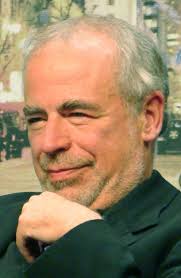
James Salter once said, “As a writer, you aren’t anybody until you become somebody.” I can just hear you now: Tell me something I don’t know, fool, but Richard Russo includes the quote before his first essay in the collection, The Destiny Thief, for a reason: becoming somebody in writing is about as far-flung difficult as becoming a major-league athlete or an A-list Hollywood actor.
Why, then, are the numbers of wannabe writers legion? Part of the reason is that beginning writers are clueless. The problem with that obvious statement is, to become successful, you have to be. To an extent.
Here’s a relevant excerpt from Russo’s essay, “Getting Good”:
“In ‘The Getaway Car,’ Ann Patchett’s wonderful essay about becoming a writer, she observes that not many beginning cellists believe they’ll be playing Carnegie Hall anytime soon, whereas beginning writers (and I was one of these) will often send off early work to The New Yorker. It’s possible that musicians are just smarter than writers, but a more likely explanation is that playing the cello immediately announces itself as both difficult and foreign, whereas writing feels like an extension of speaking, something we’ve been doing almost since birth. For whatever the reason, aspiring writers are less gifted than cellists at judging how long it takes to get good. When the relatively short apprenticeship that beginning writers too often anticipate turns out to be a very long one, they become understandably frustrated and resentful. Had they gone to law school, they’d be lawyers by now. Indeed, had they chosen to do almost anything else, they’d be making money instead of hemorrhaging it.”
From here Russo launches into writing as a vocation vs. writing as a business. Self-publication, thanks to Amazon and other platforms, is a cinch nowadays. The trouble is, you shouldn’t pull that cinch unless you know something about the business aspect of writing.
Yes, you can make an end run around the slow powers-that-be (conventional publishers), but to what purpose? You climb one mountain (seeing your work in paperback form) only to see another that’s much larger–finding people to actually buy your book, then read it (uh, I mean someone other than Aunt Mae and your best friend who borrows stuff off you all the time and feels obligated).
Maddening, no? Like everything else in life, success in writing amounts to a medley of talent, self-discipline, and luck, with the only bar being that which separates the disciplined from the pretenders. But even among the disciplined, success isn’t guaranteed. There’s the luck part. And the who-you-know part. And the being in the right place at the right time part.
But not the excuses part, thank you. The one merit to the old guard is that wannabe writers were often rejected again and again and learned from that. They grew as humble and self-aware as an aspiring cellist. They studied and tried different things and made themselves better instead of repeating the same mistakes over and over again.
But they surely didn’t schedule auditions with Carnegie Hall. And why? Because they had to show up personally, for one thing, and listen to themselves through other ears and not their own self-deceiving ones.
Meanwhile, writers still wet behind the ears continue to send stuff to The New Yorker because it’s easy and done through the internet and they’ll never know how much of the piece was actually read before being gonged into the form-rejection file. Mercifully, I might add.
The conclusion? Keep doing what you’re doing. Only don’t.
Ah, the writing trade. Don’t you just love it?
.

